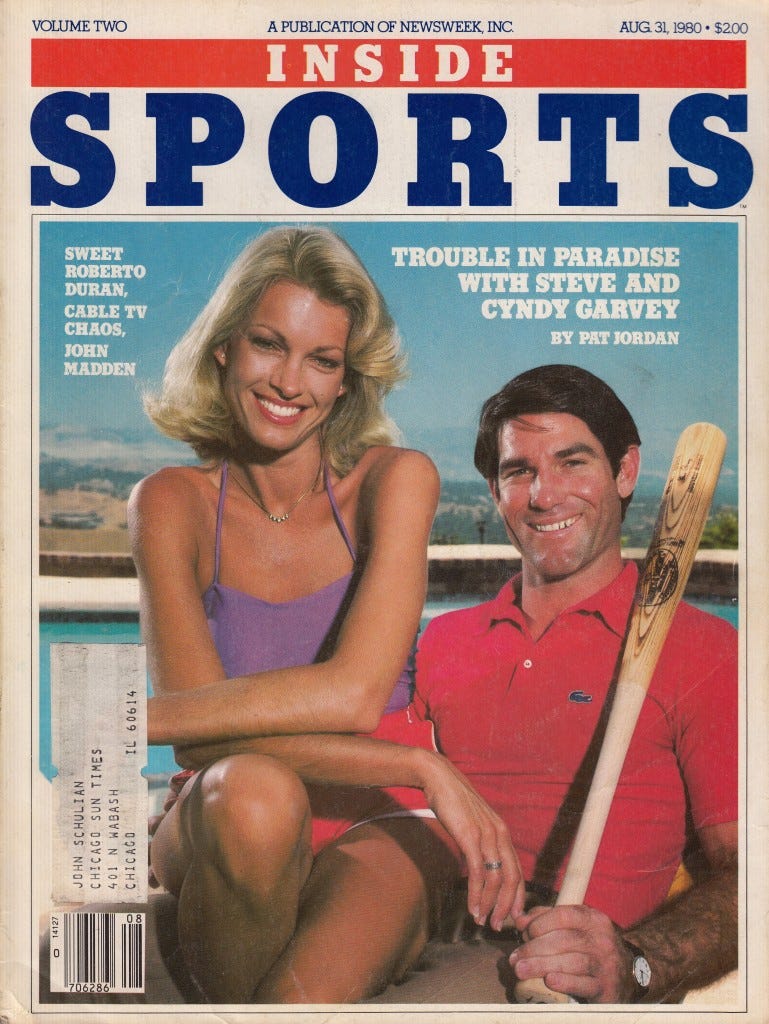
“It’s natural to me to say, ‘Hello,’ to everyone. To wave to those little old ladies who haven’t missed a game. I look forward to seeing them. In life, you’re either a people person or a private person. I’m a people person. I like dealing with groups of people. I think I can get along with banker’s sons and blacks from the ghettos. When I retire, I’d like to go into politics.”
— Steve Garvey, speaking to Pat Jordan, Inside Sports, “Trouble in Paradise,“ August 31, 1980
It didn’t go without saying that Dodger first baseman Steve Garvey would run for office someday, but it went without questioning. In the 1970s, some would contend that Garvey came across more like a politician killing time as an All-Star ballplayer than the reverse.
So there was nothing unexpected about Thursday’s article by Seema Mehta in the Los Angeles Times revealing that Garvey might throw his cap in the field to succeed Dianne Feinstein as a U.S. Senator from California, except for one thing.
Garvey isn’t 34 or 44. He is 74, and the notion of him as public servant has been dormant all those decades.
Ah, time. Garvey was only 29 years old when the people of Lindsay, California named their junior high school after Garvey, wiping away a man born too soon to be a Gold Glover, Abe Lincoln.

Los Angeles Times, February 26, 1978
In the article written 45 years ago by Skip Bayless — yes, that Skip Bayless — Garvey’s polish is shined to a fault, while his so-called faults are a politico’s comic relief.

If you were looking for any sign of actual misgivings about Garvey in the story, you could find them in this soft cry for help from his future ex-wife.




Comments are closed.